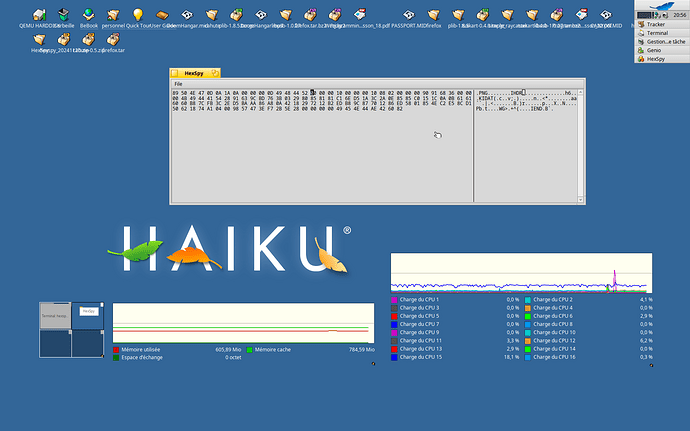I saw this topic Hex editor, so I started making a hex editor for Haiku (even if I saw later that there is already a hex editor, DiskProbe), because I wanted to learn how to use Haiku’s API. Currently it is a bit unstable, the code is quite messy, but it works.
Genio’s template was very useful for me, same for the Be Book. The help on the third party haiku IRC channel also helped me a lot. Thanks!
I still have a lot of refactoring and I still need to add a lot of important features like selection, copy/paste, undo/redo, search, etc.
When you open it, the default edition mode is insert, which lets you insert bytes. Use the insert key to switch to replace mode if you need to. The insert mode should behave similarly as it does in GHex.
I’m a newbie in C++ (but I know C well) so tips are welcome :D.
The source code is available here: GitHub - mibi88/HexSpy: A small hex editor for Haiku.. You can easily build it by running make in the terminal.
I can provide a x86 build.
I hope it can be useful for some people.
As stated in the MIT license, I can’t be responsible for any damage caused by this software. Also note that it is in a very early state, so it may be buggy, and cause some damage.
Any kind of feedback is welcome :D!
Here is a screenshot of it:
Ps: Please tell me if this is in the wrong category. I don’t know if the “Development” category is the right one.
EDIT:
I also don’t know if the name is good. I tried to make it similar to other names of BeOS/Haiku apps which have some really special names like “PoorMan” ![]() .
.
